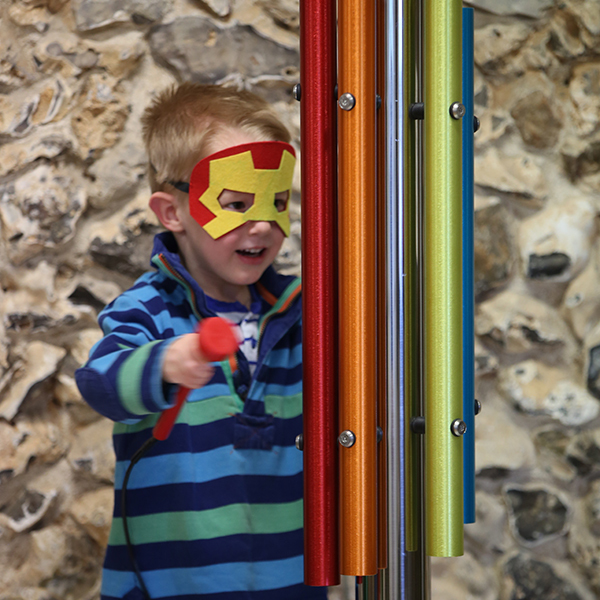Taking The Music Lesson Outdoors This Term
Outdoor musical instruments make wonderful playground equipment for schools and nurseries as well as outdoor learning and music resources. At an early age children are learning to enjoy and appreciate music and therefore don't need a formal learning environment. Children often feel less inhibited outdoors and musical playground equipment will help you introduce basic musical concepts whilst being sure that the focus is on fun. Due to their clever design and use of the pentatonic scale, our outdoor percussion instruments are so easy to play that children are able to develop musical skills without having to manage any technical demands of an instrument, showing children what can be expressed and achieved through music.
Being outdoors helps ensure children have a genuine freedom of musical expression. Behind this is the notion of experimentation, of flexibility, of having a go. Most important of all, they come to understand the pleasure of enjoying music.
Using musical instruments in the playground alongside games and movement, the children are introduced to the elements needed to become confident, rounded musicians.
Pulse: The steady beat that keeps going at the same speed for the length of a piece of music Rhythm: How the beat is subdivided into longer or shorter notes Pitch: Notes moving higher and lower Improvisation: The ability to invent your own music Co-ordination: Pulling together the physical, technical and musical aspects Expression: the ability to identify and convey emotional content.
Percussion Play produce many different outdoor musical instruments suitable for your school playground, outdoor classroom, sensory gardens or performance area. Many are based on traditional African instruments also played at ceremonies outdoors;
Marimbas: The marimba is a musical instrument in the percussion family. It consists of a set of keys or bars with resonators. The bars are struck with mallets to produce musical tones. The Akadinda – is a traditional xylophone from Uganda. Percussionists of all abilities, and anyone who loves to jam can enjoy playing the Akadinda. The pentatonic tuning and the resonant wood work together to help make these instruments sound wonderful. Metallophones such as the Harmony are any musical instrument consisting of tuned metal bars, which are struck to make sound. Metallophones have been used in music for hundreds of years. Xylophones: The xylophone meaning "wooden voice" is a musical instrument in the percussion family which probably originated independently in Africa and Asia. It consists of wooden bars of various lengths that are struck by mallets. Chimes: From small garden wind chimes to towering heavy-duty aluminium tubes like the Emperor Chimes or producing deep resonant sounds. Drums: With a distinctive Afro-Cuban influence; drums can be played using the hands to create a tom-tom like sound, creating an exciting avenue for players to create their own music and produce a big, open, resonant sound. Other percussion instruments can be taken outside for lessons including rattles and shakers, such as rain sticks, bells and wood sticks.
Social interaction is a key ingredient to music and movement. Activities work better when everyone works together! You can think of these activities as not only an opportunity for children to express themselves creatively but also as a way to practice pro-social skills. Collaboration is needed to create a new melody or rhythm together. An important part of working together is listening, and children are required to listen to each other as well as to the sounds of music, sharing each other's ideas and expressing their own.
Ever since humans have existed on this planet we have been entranced with the rhythms of nature and natural sounds. Thus when music happens outdoors in whatever form, it seems bigger, brighter and just a bit different from inside. The acoustics are different of course but so is the feel of playing music outside.
Musical play equipment present schools with an excellent way of incorporating outdoor education into the day-to-day curriculum. In this age of computer games, the Internet and digital TV, it is perhaps no surprise that more and more children are missing out on an outdoor education. However, watching a class of children playing outdoor instruments prove that when presented with the opportunity, life outdoors is still something children benefit greatly from and, more importantly, enjoy.

